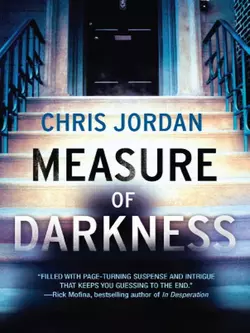Measure Of Darkness

Chris Jordan
Тип: электронная книга
Жанр: Современная зарубежная литература
Язык: на английском языке
Стоимость: 153.68 ₽
Статус: В продаже
Издательство: HarperCollins
Дата публикации: 16.04.2024
Отзывы: Пока нет Добавить отзыв
О книге: HERE ARE THE FACTSFor the parents whose children have been taken, for the brokenlives we piece back together one relentless investigation at a time, our town house is a sanctuary. My name is Alice Crane. I’m just one of a talented team working for Naomi Nantz, the brilliant and very private detective. Today that sanctuary was violated.The famous kid-finder Randall Shane was taken away by unknown assailants, possibly government agents. Shane’s client is dead, and a boy known as “the keyboard kid” is missing. What is the boy’s connection to a top secret physics lab? Unknown—for now. But under Naomi’s lead, we will infiltrate every illicit boardroom and bedroom and war room. We’ll find that little boy or die trying. The only thing guaranteed in this life is that Naomi Nantz won’t give up. Not now, not ever.“JORDAN’S FULL-THROTTLE STYLE MAKES THIS AN EMOTIONALLY REWARDING THRILLER THAT MOVES LIKE LIGHTNING.” —Publishers Weekly on Taken